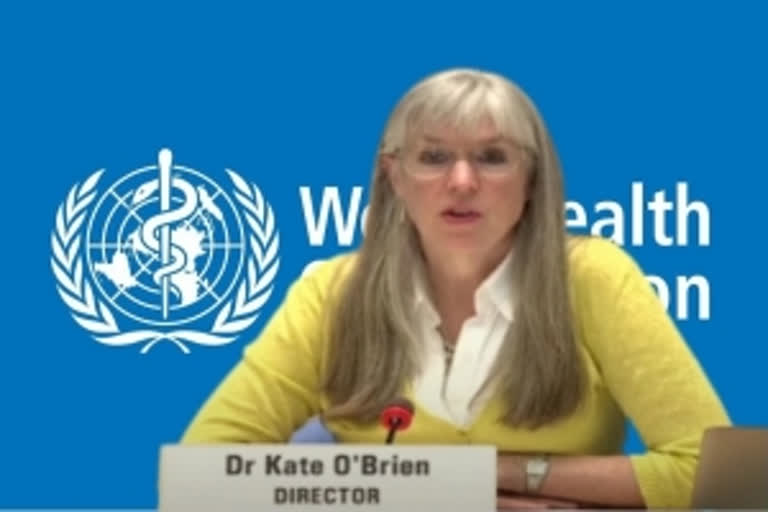Geneva (Switzerland): The troublesome storing conditions of some candidate coronavirus vaccines and the associated high costs should not discourage countries from adopting them as an immunization means, Kate O'Brien, the director for Immunization, Vaccines and Biologicals at the World Health Organization (WHO), said on Friday.
"Every country is going to have to work very hard and is going to have to innovate around systems to actually deliver vaccines that do have an ultra-cold chain. And part of the approach that many countries may take is to choose to use vaccines that require an ultra-cold chain for only certain portions of the population that need to be vaccinated," O'Brien said at a virtual briefing.
As an example, she said such vaccines could be used to inoculate health care workers at facilities in which installing a freezer with ultra-low temperatures would not be an issue.
Also Read: 38 million hit by HIV says WHO ahead World AIDS day
"So I think the main message is that we do have the technology, there is demonstrated experience of delivering ultra-cold chain vaccines, even in some of the most difficult and remote areas, but that has also taken enormous resources to do that. So what we do need is a variety of vaccines that have different characteristics," the official added.
Most of the promising candidate vaccines currently completing phase 3 clinical trials belong to the so-called cold-chain category, meaning that they need to be stored and transported at a certain temperature above which the efficacy would be jeopardized.
Pfizer's mRNA-based vaccine needs to be stored in as cold of an environment as -70 degrees Celsius (-94 degrees Fahrenheit).
Russia's Sputnik V vaccine, built on human adenovirus, requires at least -18 degrees Celsius. Moderna's mRNA-based vaccine can be stored at normal refrigeration temperature from 2-8 degrees Celsius but only for a month, while a longer storage period requires a lower temperature.
All three candidate vaccines have proven to be over 90 per cent efficient so far.
(ANI/Sputnik)



